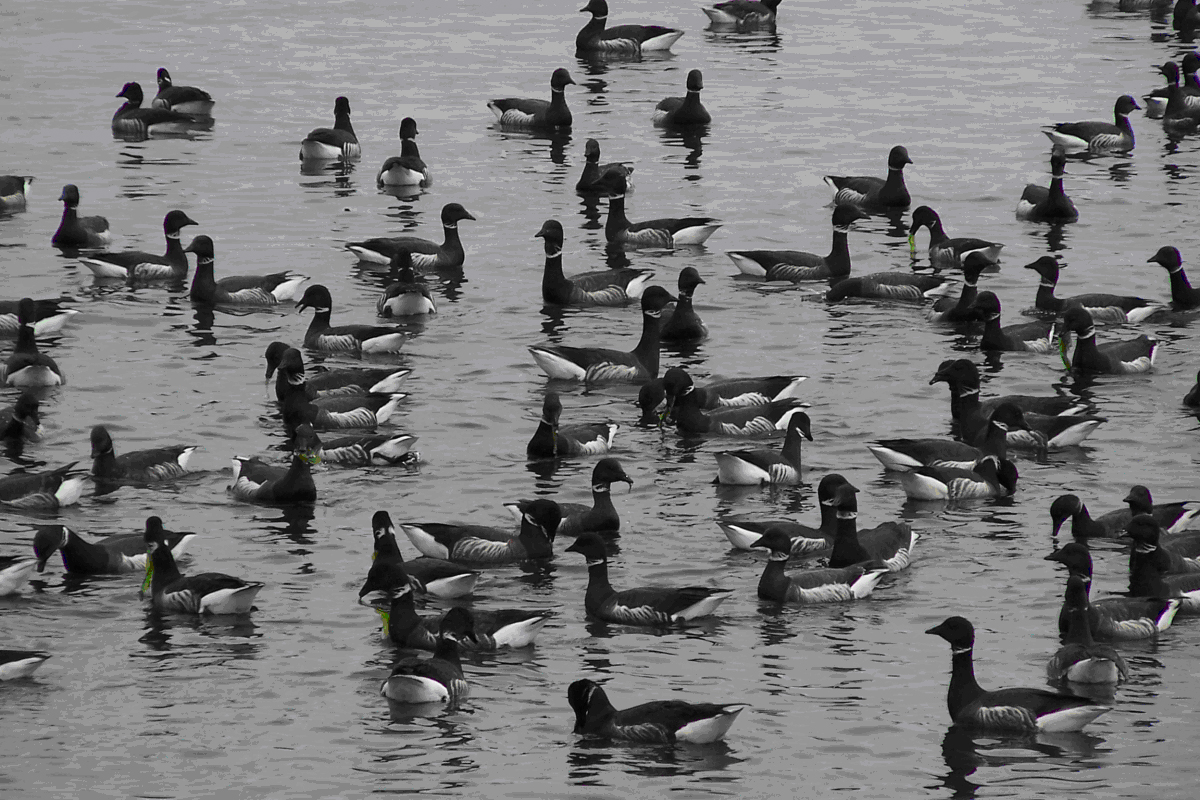In April 2022, the Department of Natural Resources and the Clallam County Hearing Examiner issued a permit and a lease for a 50-acre oyster farm that is within Dungeness National Wildlife Refuge near Port Angeles.
“The close proximity of Brant habitat are believed to be the reason for an increase in abundance of Brant observed on the Refuge, a level not observed elsewhere in the state in recent years.” Although these migratory birds at the Wildlife Refuge are protected by the Migratory Bird Treaty, the shellfish company was granted a lease from the Department of Natural Resources and a Conditional Use Permit from Clallam County.
Now, two years later, Protect the Peninsula’s Future has filed an appeal in Federal District Court in Seattle pleading that the USFWS must now make a compatibility determination showing the oyster shellfish operation does not harm the Dungeness National Wildlife Refuge.
The U.S. Fish & Wildlife Service asked the court to dismiss the case, which is odd since the agency is denying their own authority. On July 17, 2024, the Seattle Federal District Court denied the USFWS request to dismiss the environmental group’s case.
The Coalition to Protect Puget Sound Habitat and Beyond Pesticides joined Protect the Peninsula’s Future and challenged the USFWS in Federal District Court. This coalition of groups also asked the judge to require a permit from USFWS if the judge determines that a 50-acre industrial shellfish operation is incompatible with the mission of the Dungeness Wildlife Refuge. The U.S. District Court for the Western District of Washington State concluded that the Refuge Act requires the USFWS to complete a compatibility determination.
Back in April 2022, prior to granting a permit for the oyster farm, the USFWS did not provide a consultation regarding the impact on wildlife. It also did not provide a compatibility determination or a permit for the shellfish operation.
This refuge hosts 240 species of birds, 29 species of mammals, 8 species of reptiles and amphibians, and 26 species of fish. The refuge is also protected by the Pacific Flyway Management Plan, in which the USFWS is party to the Migratory Bird Treaty and Act
Now, in August of 2024, in the review of the case before Judge Benjamin Settle, the USFWS attempted to dismiss the case. The judge affirmed the Refuge Act and upheld the law. He affirmed that the U.S. Fish & Wildlife Service “shall not initiate or permit a new use of a refuge or expand, renew, or extend an existing use of a refuge, unless the Wildlife Service has determined that this is a compatible use and that the use is not inconsistent with public safety.”
“To conclude otherwise would lead to absurd results. It would require the court to ignore the clear instructions in the Refuge Act and its regulations that deputize the Service to regulate activity within the Refuge,” according to the Judge.
“Indulging the Service’s position would also require ignoring the points in the Refuge Act that carefully instruct the Service on how to navigate conflicting or concurrent authority within a refuge,” said the judge.
“It bears repeating that the Service already acknowledged that it ‘cannot allow the proposed activity unless the entirety of the commercial oyster farming operation within the Refuge boundary is found compatible with the Refuge purposes.’”
In April 2022, representatives of another coalition of eleven environmental groups met with Department of Natural Resources (DNR) staff to discuss the lease that allowed a 34-acre oyster aquaculture operation within the Dungeness National Wildlife Refuge.
They asked the Commissioner of Public Lands Hilary Franz to not provide a lease to the Jamestown S’Klallam Tribe because it was located within an area of the Refuge that is seasonally closed to the public to protect migrating birds, and also near an eelgrass area important to migratory birds.
Despite this appeal to the staff of DNR and to the county’s Hearing Examiner, the permits were granted. At the time, none of the coalition of environmental groups had the funding or the legal capability to challenge the permit in state and federal courts.
Now, two years later, Protect the Peninsula’s Future and a new coalition has found a way to call into question the failure of USFWS to protect birds and wildlife within the Refuge. Judge Settle’s decision is a major win for the citizens of the United States and for the wildlife dependent on the U.S. Fish & Wildlife Service (USFWS). It is a major win for migrating birds who return each year to the Dungeness National Refuge for their protection, feeding and breeding.
The decision also constitutes a major win for the state’s environmental community, who are opposed to the commercialization of shorelines in Dungeness National Wildlife Refuge and other refuges around the state.
On August 6, 2024, the plaintiffs refiled their amended case for the judge and asked him to rule on whether or not the USFWS must write a compatibility determination. And they also asked that if the shellfish operation is allowed, that the judge require the U.S. Fish & Wildlife Service to write a permit for the refuge.


